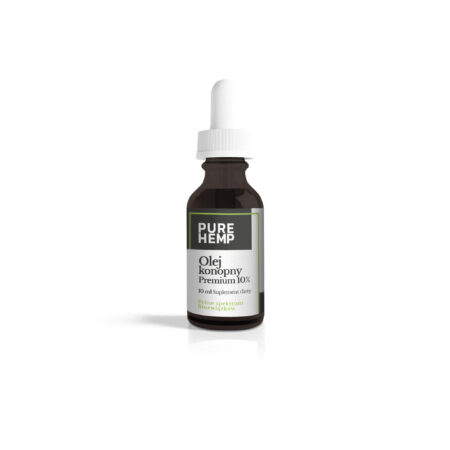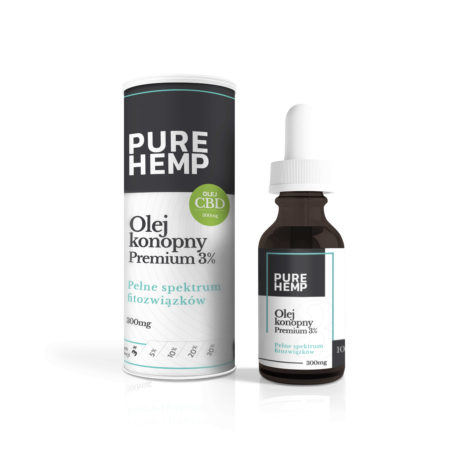CBD oil for gram positive bacteria?
In 2019, a research report was presented at the annual conference of the American Society for Microbiology indicating that CBD cannabidiol effectively fights gram-positive bacteria.
An early-stage test-tube study conducted by Dr Mark Blaskovich of the Institute of Molecular Biology at the Super Bacteria Research Centre (University of Queensland) in collaboration with Botanix Pharmaceuticals demonstrated the high efficacy of cannabidiol on a broad spectrum of skin problems and infections caused by gram-positive bacteria.
This research was funded by an Australian government grant.
CBD has also been shown to be effective against bacteria that show resistance to traditional antibiotics. CBD has also been shown not to lose its effectiveness with long-term antibacterial use.
CBD retained its antibacterial efficacy over a long period of time. Long after bacteria had developed resistance to such traditional antibiotics as vancomycin, methicillin and daptomycin.
Beyond that cannabidiol damages the bacterial biofilm i.e. the physical form of bacterial communities.
A bacterial biofilm is such a hard-won fortress where bacteria protect themselves from the human immune system. Interestingly, different species and types of bacteria can cluster in the bacterial biofilm. In this spore-like form, resistant to treatment and antibiotics, the bacteria wait for an opportunity, i.e. a drop in the body's immunity.
To quote Dr Blaskovich:
Considering the documented antibacterial properties of cannabidiol, the existing data on its safety profile and the variety of application methods, it can be concluded that this is a promising antibiotic compound worthy of further research. The combination of its antibacterial activity and its potential to reduce damage to the body caused by inflammatory infections is particularly interesting and highly promising.
Which specific gram-positive bacteria cannabdiol CBD is effective against is it worth using CBD oil on bacteria?

© iStock/Ivan-balvan
Gram positive bacteria controlled by CBD
Streptococcus pneuomonia
Streptococcus pneuomonia is a pneumococcal pneumoniae duo. It is among the most dangerous bacterial pathogens of humans. Streptococcus pneumonia causes pneumonia and meningitis. It is estimated that 5-10% adults and as many as 20-40% children are carriers. Carrying the pneumonia bug does not equate to disease, but with a decline in immunity, the risk of infection increases.
Staphyloccocus aureus
Staphyloccocus aureus, on the other hand, is staphylococcus aureus. It is estimated that as much as one third of the earth's population is a carrier of Staphylococcus aureus. It is particularly common among hospital staff. It is responsible for numerous local (skin) and invasive infections.
Topical infections caused by Staphylococcus aureus include:
- impetigo,
- folliculitis,
- boils (furunculus),
- boil (furunculosis),
- abscesses (abscessus),
- hidradenitis suppurativa,
- mastitis,
- inflammation of the subcutaneous tissue (cellulitis),
- fasciitis
- rose (erysipelas).
Internal infections caused by Staphylococcus aureus:
- septicaemia
- endocarditis
- blood-borne inflammation of locomotor organs (bones and joints)
- haematopoietic nephritis
- blood-borne pneumonia
- blood-borne infection of the central nervous system
Internal infections caused by Staphyloccocus aureus have a very high mortality rate of up to 50%.
CBD is available in many forms. You can choose capsules or cbd crystals. You can choose cbd oil for bacteria. You can smoke or vaporise dried cbd. The forms and methods of use are many, and the choice depends on your preferences, among other things.
If cbd hemp oil is a source of cannabidiol is it worth using as a cbd oil for bacteria? In some cases, certainly yes, but you have to draw that clear conclusion yourself.
CBD for super bacteria
Drug-resistant and antibiotic-resistant bacteria are called superbugs. The threat of the spread of these dangerous microorganisms has been known since 2015 when the World Health Organisation (WHO) published a report on the subject (see sources for link).
The aforementioned test-tube studies have shown that CBD is very specific and effective in helping to combat certain bacterial species. We are not only talking about the aforementioned Streptococcus pneumonia and Staphylococcus aureus in their usual antibiotic-susceptible forms.
The efficacy of CBD has also been demonstrated against superbugs such as VRSA and VISA (vancomycin-resistant Staphylococcus bacteria) or MRSA (methicillin-resistant strains of Streptococcus aureus or Staphylococcus aureus).
During the 20-day study, none of the strains or types of these bacteria developed resistance to CBD.
CBD on bacteria - mechanism of killing bacteria
What is the mechanism by which CBD can be used effectively even in the face of drug-resistant bacterial infections?
An interesting conclusion comes from a 2019 study by British researchers on Escherichia Coli bacteria.
Bacteria spread and communicate via membrane vesicles.
A healthy, unoverloaded and well-functioning immune system can cope on its own with the problem of bacterial proliferation and the development of infections. However, if there are not enough antibodies in the body, if the body is overloaded, a so-called immunodeficiency develops and antibiotics have to take effect.
Antibiotics block the ability of the bacteria's membrane vesicles to release 'signals', preventing them from multiplying and communicating. However, if the antibiotic does not work as in the case of antibiotic-resistant superbugs, the problem becomes very serious and the invasion of bacteria in the body proceeds unhindered.
The aforementioned study showed that CBD increases the ability of antibiotics to block the membrane vesicles of bacteria also resistant to antibiotics. At the same time, it makes bacteria and super bacteria less resistant to drugs and antibodies of the human immune system. Brilliant!
Significantly in the study on Escherichia Coli CBD acted as a support raising the potency of antibiotics and the efficiency of the immune system itself by reducing the efficiency of communication and the rate of bacterial proliferation.
This is a health blog so let me state that:
CBD oil provides powerful natural support for the immune system in the fight against pathogenic bacteria
In the light of these findings, cannabidiol improves the action of our own antibodies and pharmacological drugs increasing the effectiveness of the entire immune system in fighting microbial and bacterial infections.
More advanced and peer-reviewed studies are needed so that we can be sure if and how exactly these mechanisms work in the human body. It is also important to be aware of the risk of interactions and to consult a doctor. However, the researchers are optimistic and almost certain of the outcome - cannabidiol will be a weapon in the fight against even the strongest pathogenic bacteria.
Looking for a source of CBD? Want to buy CBD oil for bacteria? We encourage you to purchase Purehemp's proven oils:
Sources:
https://biotechnologia.pl/biotechnologia/biofilm-bakteryjny-co-o-nim-wiemy,17010
https://www.eurekalert.org/pub_releases/2019-06/asfm-cia061719.php
https://www.eurekalert.org/pub_releases/2020-03/uosd-nsc032420.php
https://www.medonet.pl/choroby-od-a-do-z/choroby-zakazne,staphylococcus–aureus–epidermidis—zakazenie-gronkowcowe
https://apps.who.int/iris/bitstream/handle/10665/194460/9789241509817_eng.pdf
You can find disclaimers for content published on the blog by clicking here.


